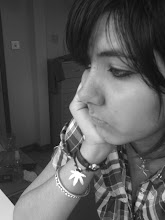Were there adequate provisions for the army?

Charles Usherwood's Service Journal, 1852-56 — the Battle of Inkerman:
Deaths alarmingly numerous, duty excessively hard, rations extremely scarce, in one Company for 16 men there were only 4 rations (commissary unable to convey the requisite supply of forage etc. to Camp even only from Balaklava in consequence of the badness of the roads and death among the Transport animals.
In December, 1854, and January and February, 1855, our poor fellows were dying like rotten sheep for want of the common necessaries of life — they had little or no food, hardly sufficient clothing to cover their nakedness, the tents were full of holes, and they had nothing but mud to lay their weary bones in, with the thermometer far below freezing-point.
One of the most mortifying pills that our poor fellows had to swallow was the knowledge that although they were dying by wholesale for want of shelter, clothing, and food, the huts had arrived in safety at Balaclava, or were floating about the harbour and being stolen by those handy little fellows the Zouaves, to make firewood of; the overcoats lay in lighters; while food and nourishment, and every comfort that could be thought of by kind-hearted people — such as potted meats of all descriptions, ground coffee, preserved soups, good thick, warm, flannel shirts, comforters knitted by ladies at home, flannel drawers, and good fustian jackets, waterproof coats and leggings, and tobacco in tons — were rotting in the harbour or stacked up upon the shore. A few men who were stationed at or near Balaclava got the lion's share.
Thousands had been sacrificed by cruel hardships little or no food, hardly sufficient clothing to cover their nakedness, in the trenches for twelve hours at a stretch up to their ankles (or sometimes knees) in mud — half drowned, frozen to death, their limbs dropping off through frost-bite! There is hardly one of those men now living who does not feel the effects of that terrible winter of 1854. Thousands have since perished through diseases contracted during that awful time; but the excitement, supported by an invincible spirit, kept them up then, and for some time after.
The British army suffered great privations during the Crimean War; men died from the cold, lack of food and the results of their injuries. No-one appeared able to alleviate the suffering of the troops. — Marjie Bloy Ph.D., Senior Research Fellow, National University of Singapore.
The photograph taken by Fenton called "the cookhouse", gives a lot of clues as to what the conditions were like behind the lines. It shows



